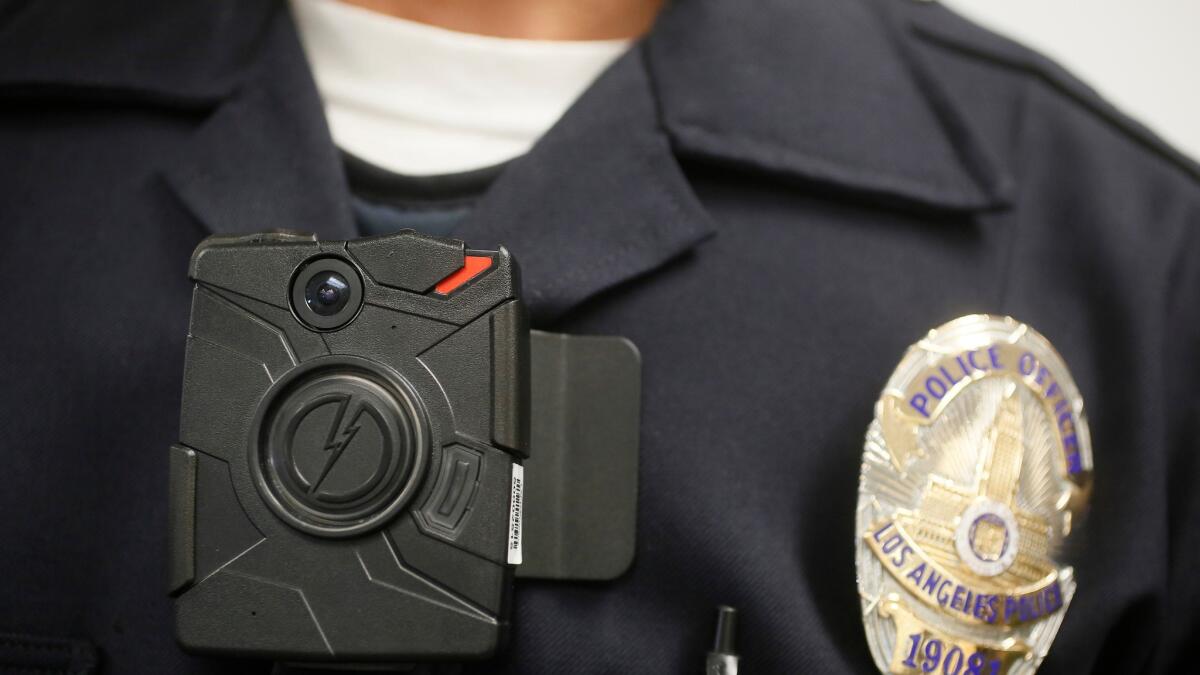Editorial: Stop trying to keep police video out of public view

- Share via
Many California police agencies, including the Los Angeles Police Department, embraced body-worn cameras as a solution to widespread public concern about officers’ use of deadly force in the two years since the death of Michael Brown in Ferguson, Mo.
And for just about as long, state lawmakers have been trying to keep the footage from body cameras out of the hands of the public.
Most of those efforts have failed, but one proposal, AB 2611 by Assemblyman Evan Low (D-Campbell), is in danger of becoming law. The bill, which was passed by the state Senate Monday and will soon head to the governor’s desk, would change the California Public Records Act to bar public agencies from releasing any video or audio that depicts the death of a police officer in the line of duty, unless authorized to do so by the officer’s immediate family.
It doesn’t serve the public’s interest to slap prohibitions on the release of an entire category of information.
It’s not difficult to see why legislators would find this sympathetic-sounding proposal appealing, coming so soon after the assassination of police officers in Dallas and Baton Rouge. Nevertheless, there are two problems with this approach. First, it doesn’t serve the public’s interest to slap prohibitions on the release of an entire category of information, especially if there’s no evidence that such releases have become a problem. As unpleasant as the thought may be, there may be times when police departments find that releasing footage that includes an officer’s slaying serves the public’s interest, not a prurient one. For example, the video may help the public find the officer’s killer.
Second and more important, decisions about withholding public information should be made exclusively by public officials. Grieving families are bound to be less attuned to the potential public benefit of releasing a video — and understandably so.
There is a reasonable middle ground here, and that is to treat police videos as if they were any other public records. Next year we’d like to see a bill that says, notwithstanding the exception for investigative files, video from body cameras should be released if it meets the balancing test used for other state public records. That will put the burden on police agencies to justify why it is not in the public’s best interest to release a particular video. To guard against exploitation, agencies would retain the discretion currently in the law not to release video if it would constitute an “unwarranted invasion of personal privacy.”
We hope Gov. Jerry Brown will have the sense lacking in too many legislators and veto this bill. He would do the public a greater favor if he returns it to legislators with the message that they should stop trying to unilaterally shut down public access to body-camera videos.
Follow the Opinion section on Twitter @latimesopinion and Facebook
More to Read
A cure for the common opinion
Get thought-provoking perspectives with our weekly newsletter.
You may occasionally receive promotional content from the Los Angeles Times.









